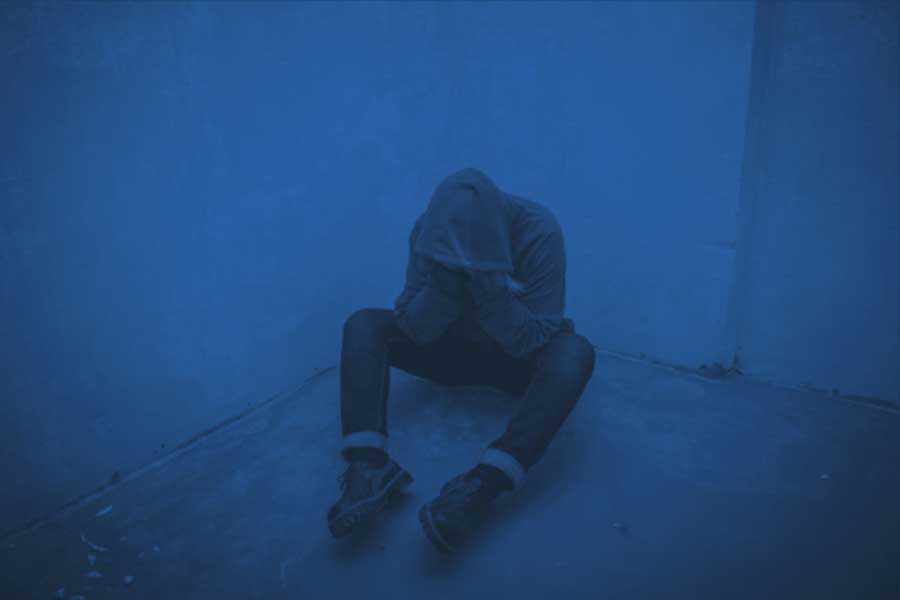Heroin is one of the most powerful substances known to man. For those caught in its grip, heroin addiction can be a life and death struggle. Those who decide to quit using the drug can experience withdrawal symptoms that can be extremely uncomfortable, painful, and in some cases, life-threatening. Heroin withdrawal requires strict supervision from experienced drug treatment staff.
A major reason why people relapse or avoid treatment altogether is the severity of heroin withdrawal. While the process can be daunting, understanding the withdrawal symptoms can aid you in the recovery process. The following article outlines what happens to your boy when you withdraw from heroin.
The Short-Term Effects of Heroin Withdrawal
The effects of heroin withdrawal can be felt in addicts within 8-12 hours of last use. Depending on the length of time and frequency of use, the short-term physical and psychological symptoms of heroin withdrawal can include a runny nose, dehydration, restlessness insomnia. Addicts can also experience muscle aches, spasms, extreme mood swings, irritability, and aggression.
Most of the short-term withdrawal symptoms are physical in nature. Because of this, it is crucial that addicts undergo medical detoxification at the start of the treatment process. With medication-assisted therapy, nutritional interventions, and other programs, the effects of heroin withdrawal can be more tolerable.
The Long-Term Effects of Heroin Withdrawal
After the short-term effects of withdrawal, addicts will begin to experience more intense and longer-lasting symptoms. The length of time these symptoms usually begin one to three days after last use. In more severe cases, the long-term effects can last for five to seven days. The long-term effects of heroin withdrawal can include psychological symptoms such as depression and anxiety.
Long-term heroin withdrawal symptoms can also include intense paranoia, periods of hyperactivity, and intense drug cravings. This phase of recovery is often the toughest since the body is working to function without the drug present in the system.
The Danger of Post-Acute Withdrawal Syndrome (PAWS)
Within a couple of weeks, the physical and psychological symptoms of heroin withdrawal begin to subside. While newly recovering addicts start to feel better and undergo drug treatment, they are not out of the woods. Over time, withdrawal symptoms can return. This is commonly known as post-acute withdrawal syndrome (PAWS).
PAWS is seen as the second phase of withdrawal. Whereas the first stage of heroin withdrawal is marked by physical withdrawal symptoms, the symptoms of post-acute withdrawal syndrome are marked by emotional and physiological withdrawal symptoms. Heroin withdrawal symptoms experienced in the post-acute stage can last for weeks and even months.
Common symptoms seen with PAWS include anxiety, emotional outbursts or lack of emotion, low energy, and difficulty dealing with stress. Additionally, newly recovering addicts can experience dizziness, sleep disruption, balance and coordination problems, and memory problems among other symptoms. Because of the length of time, these symptoms can persist, it can cause great stress for both the recovering addict, their family, and their loved ones.
The Importance of Professional Drug Treatment
If you or a loved one is struggling with heroin addiction, it is extremely important that you seek professional treatment. As stated earlier, heroin is an extremely potent drug with significant withdrawal symptoms. While quitting cold turkey and other self-detox methods may be attractive, the severity of heroin withdrawal can cause severe complications. This is especially true if you are abusing other substances or have pre-existing medical issues.
The first step in overcoming heroin addiction is completing a medical detox program. During heroin detox, a variety of medications can be utilized. These medications include Suboxone, Vivitrol, and buprenorphine. Along with medications, treatment professionals may also utilize nutritional therapy and other interventions that aim to decrease heroin withdrawal. Once you become physically and psychologically stable, you are ready to transition into formal drug treatment.
Whether done on an inpatient or outpatient basis, drug treatment will give you the tools and support you need to minimize the effects of heroin withdrawals and addiction. Experienced treatment staff will utilize a wide range of programs and services that can be tailored to meet your unique and specific needs. These services can include individual and group therapy, 12-step group participation, living skills training, and other traditional and holistic treatment techniques.
The Importance of Aftercare
Once you complete formal drug treatment, it is important to pursue some form of aftercare programs such as intensive outpatient treatment or sober living. These programs help newly recovering addicts build skills and confidence as they transition into their daily lives. Since post-acute withdrawal syndrome is a risk, aftercare programs focus on dealing with this delayed onset of heroin withdrawals and associate cravings.
The focus of aftercare programs is relapse prevention and the continued building of healthy living and coping skills. With sober living, those new in recovery can live with and get the support of other recovering addicts and treatment staff. Those who reside in sober living can stay in these residences as long as needed. Even though the cravings to use heroin may subside over time, heroin withdrawal symptoms may persist. As a result, it is important that newly recovering addicts seek support from recovering peers as well as treatment professionals in the community.
Call B-Hope Today
Many people who struggle with heroin addiction often fear treatment because of the physical and psychological withdrawal symptoms associated with the drug. Heroin withdrawal symptoms can be formidable, but help is a phone call away. The treatment professionals at Bridges of Hope can help you beat your addiction to heroin once and for all.
Our detox and treatment programs are effective, proven to work, and can be tailored to meet your individual needs. We will work with you every step of the way in helping you achieve your goal of lifelong recovery. Don’t let heroin addiction drag you under; call B-Hope toll free today. The first step to lasting sobriety begins right now,


 Verify Insurance
Verify Insurance
 Toll Free Call
Toll Free Call